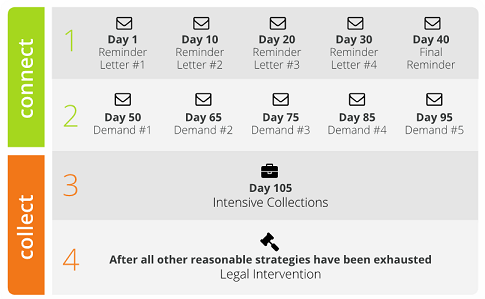
Encouraging Compliance and Responsibility:
Both debt collectors and police officers serve as deterrents, encouraging individuals to fulfill their obligations and follow laws. They reinforce societal agreements and maintain fair systems that benefit the community.
Promoting Financial Health and Stability:
Early intervention by debt collectors helps individuals avoid severe financial consequences, just as police intervention prevents dangerous situations. Both offer educational resources to promote better management and compliance.
Protecting Creditors and Businesses:
Debt collectors recover rightful money for businesses, similar to how police recover stolen property. Both ensure accountability, creating a level playing field and fostering trust in their respective systems.
| Aspect | Debt Collector Process | Police Officer Enforcement |
|---|---|---|
| Objective | Recover outstanding debt | Enforce traffic laws and ensure safety |
| Encouraging Compliance and Responsibility | ||
| Deterrent Effect | The presence of debt collection agencies motivates individuals to fulfill their financial obligations. Knowledge of consequences for non-payment encourages prioritizing debts. | The presence of police encourages drivers to obey traffic laws, knowing there are consequences for violations. |
| Example | Jane receives a call from a debt collection agency informing her of an overdue credit card payment, motivating her to pay it off, as she knows that debt collectors will not back-off easily. | Drivers slow down when they see a police car, adhering to speed limits. |
| Reinforcing Social Contracts | ||
| Comparison | Debt collectors ensure financial promises are kept, upholding societal agreements and fostering a sense of responsibility and trust within the community. | Police ensure laws designed to protect everyone are followed, reinforcing social contracts and community trust. |
| Example | Debt collectors verify debts and offer repayment plans, reinforcing the importance of fulfilling financial obligations. | Police officers check licenses and issue tickets, reinforcing the importance of obeying traffic laws. |
| Maintaining Fair Systems | ||
| Comparison | Debt collection helps maintain a fair credit system, ensuring lenders can continue to offer loans and services, benefiting the economy. | Police enforcement of traffic laws ensures fairness and safety on roads, benefiting all drivers. |
| Example | Debt collectors follow up on payment plans to ensure compliance, maintaining a fair credit system. | Police officers monitor traffic and issue citations, ensuring safe and fair use of roads. |
| Promoting Financial Health and Stability | ||
| Early Intervention | Debt collectors act as a wake-up call for struggling individuals, helping them address their situation early and potentially preventing severe consequences like bankruptcy. | Police intervention prevents minor traffic infractions from turning into dangerous situations. |
| Example | Jane agrees to a manageable repayment plan after early contact from a debt collector. | Officer Smith issues a warning for a minor infraction, preventing future violations. |
| Financial Education | ||
| Comparison | Many debt collectors offer resources and guidance to help debtors manage finances and avoid future debt problems. | Police departments offer educational programs on safe driving and crime prevention. |
| Example | Jane receives budgeting tips and financial management resources from the debt collector. | John attends a safe driving workshop after a traffic violation. |
| Protecting Creditors and Businesses | ||
| Recovering Losses | Debt collectors help businesses and individuals recover money that is rightfully theirs, essential for financial health and the overall economy. If there are no collection agencies, we would see defaults skyrocket. | Police recover stolen property, helping victims regain what is rightfully theirs. Without police, there would be thefts everywhere. |
| Example | A business recovers outstanding payments through the help of a debt collection agency. | Police recover a stolen car and return it to its owner. |
| Leveling the Playing Field | ||
| Comparison | Debt collection ensures borrowers are held accountable for repaying money, creating a level playing field and promoting fairness and trust in the financial system. | Police enforcement ensures that all drivers are held accountable for following laws, promoting fairness and trust on the roads. |
| Example | Jane’s repayment plan ensures she fulfills her financial obligations, maintaining trust in the credit system. | Officer Smith’s enforcement of traffic laws ensures all drivers adhere to rules, maintaining road safety. |

